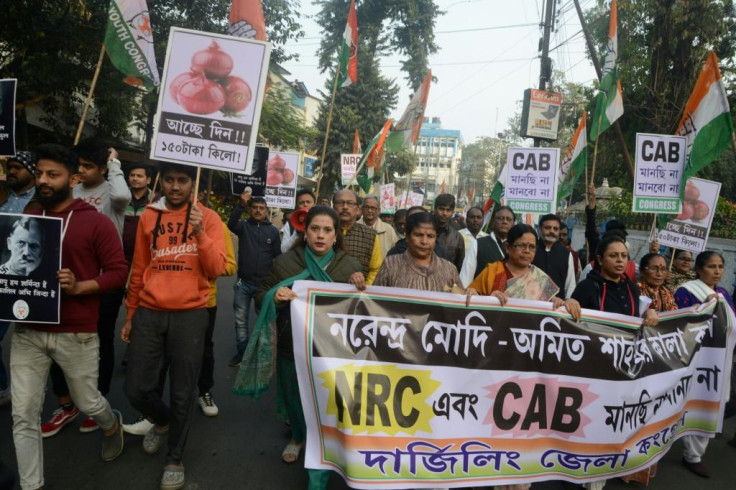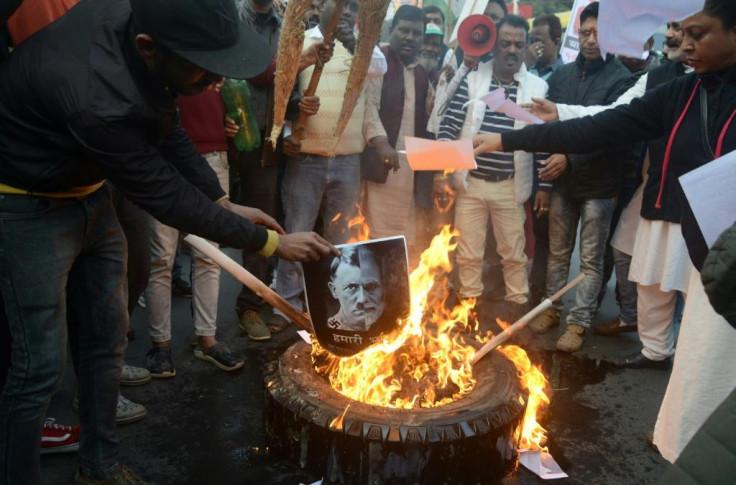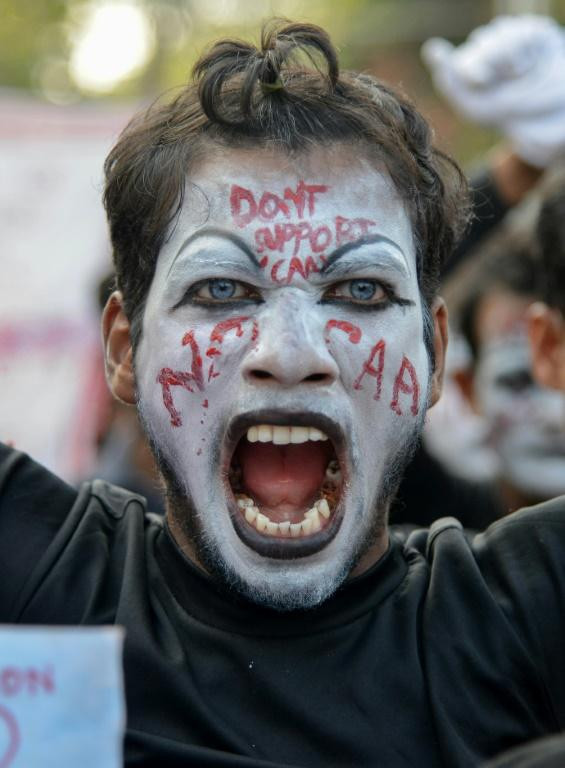Defiant Indians protest nationwide against citizenship law
Modi has insisted that his government does not aim to marginalise Muslims with the new law.
Indians defied bans on assembly Thursday in cities nationwide as anger swells against a citizenship law seen as discriminatory against Muslims, following days of protests, clashes and riots that have left six dead.
Two major Indian telecom firms also said Thursday that they have cut mobile services in parts of New Delhi on government orders.
The new law eases citizenship rules for people fleeing persecution from three neighbouring countries, but excludes Muslims, stoking accusations that Prime Minister Narendra Modi wants to reshape India as a Hindu nation and creating unease abroad.
Following days of protests that have seen four people shot dead, dozens injured, hundreds arrested and vehicles torched, authorities have banned gatherings in areas that together are home to hundreds of millions of people.

They included Uttar Pradesh state, areas of the northeast and parts of Bihar, New Delhi, Hyderabad, Bangalore and Chennai, all of which have seen protests in recent days, and in the case of the capital violence.
"People should seek permission to assemble at places where Section 144 is not imposed. No one will be allowed to gather elsewhere," Delhi police spokesman M S Randhawa told AFP.
Fourteen Delhi metro stations were shut including one near police headquarters, besieged by protestors earlier this week, as some roads into the megacity were blocked, causing immense traffic jams.
Vodafone and Airtel announced they had cut services on mobiles in some parts of the city and mobile operator Jio is reported to have followed suit.
India is already the world leader in cutting the internet, activists say, and access has been restricted in parts of the northeast and in Uttar Pradesh, home to a large Muslim minority.

Demonstrators on Thursday ignored the bans on assembly including in Delhi and Hyderabad where television pictures showed police dragging and carrying demonstrators away as they brandished placards and chanted slogans.
One protestor, Kawalpreet Kaur, who according to her Twitter profile is the Delhi President of All India Student's Association, posted that police had filled 14 buses with detainees at the Red Fort landmark.

"But more and more people are pouring in, too many to be detained," she added.
In Bangalore those detained included internationally renowned historian Ramachandra Guha while in the northern state of Bihar protestors blocked several railway stations and national highways.
Seventeen left-wing parties in the eastern state of West Bengal, long a hotbed of political violence, were due to rally in Kolkata later.
In the financial and entertainment capital Mumbai, Bollywood stars were expected to join a protest largely organised by students and young professionals on Thursday afternoon.
Actor-director Farhan Akhtar tweeted on Wednesday that the "time to protest on social media alone is over."
Protests against the law began in northeast India last week -- where all six fatalities took place -- but soon spread, fuelled by anger about alleged police brutality including at a university in Delhi on Sunday night.
Security forces in the capital have fired some 450 tear gas shells in the past five days, the Hindustan Times daily reported. One student reportedly lost an eye.
The demonstrations have at times turned violent with vehicles set on fire and protestors hurling stones at police in heavily Muslim parts of Delhi on Wednesday.
The UN secretary-general's spokesman Stephane Dujarric said Tuesday the global body was "concerned about the violence and alleged use of excessive force by security forces that we've seen that have been taking place".
The US State Department this week urged New Delhi to "protect the rights of its religious minorities in keeping with India's constitution and democratic values".
Modi has insisted that his government does not aim to marginalise Muslims with the new law, tweeting this week that it "does not affect any citizen of India of any religion."
But many in the 200-million-strong Muslim minority fear that they will be the main target of Modi's plans to implement a national "register of citizens" to remove all "infiltrators" by 2024.
Copyright AFP. All rights reserved.
This article is copyrighted by International Business Times, the business news leader





















